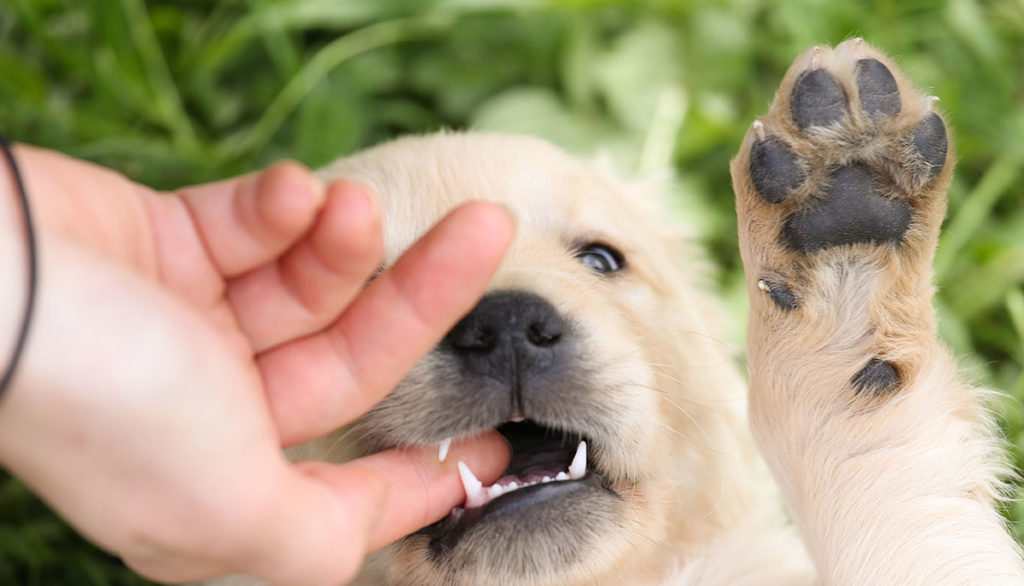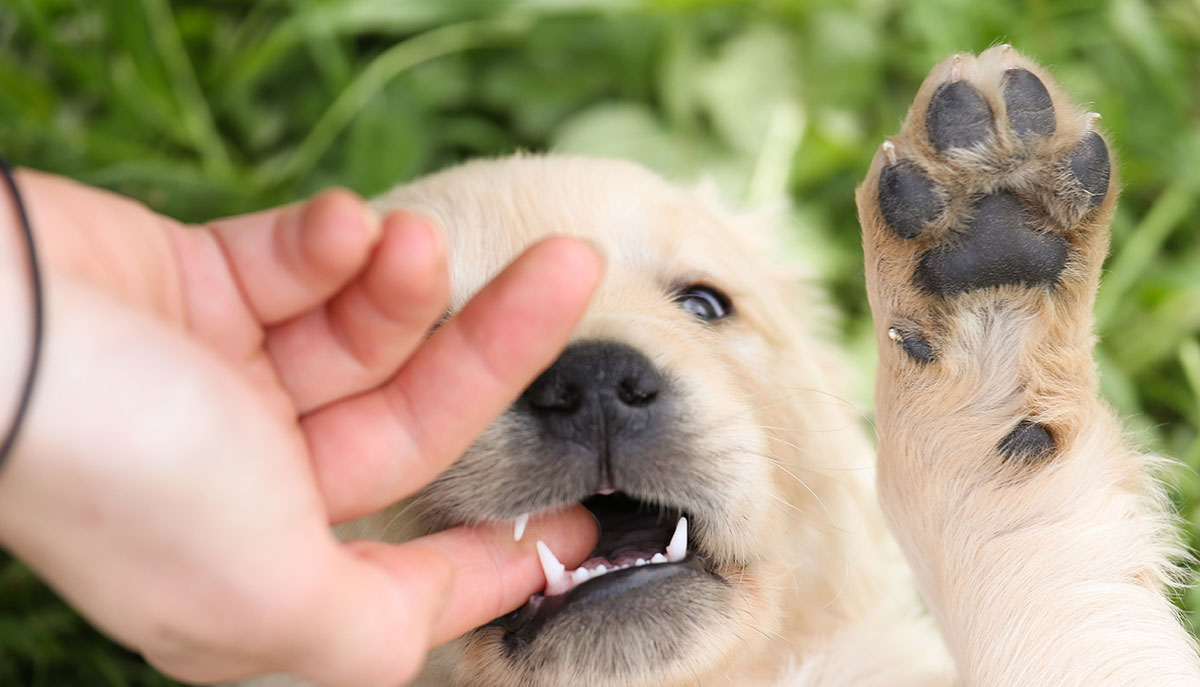
Halo is proud to work together with The Humane Society of the United States, the nation’s leading advocacy organization for animals, to help ALL animals!
It’s not always easy to convince a new puppy not to bite the hand that feeds them, pets them, or plays with them, for that matter.
When puppies play with each other, they use their mouths, so they may also be inclined to bite or “mouth” your hand during play or when being petted. This is rarely aggressive behavior meant to do harm, but it is a difficult habit to break unless you encourage your puppy to try an acceptable alternative behavior. The goal is to redirect your puppy’s energy onto acceptable chew toys, and to teach them to be gentle when a hand is in or near their mouth.
Encourage acceptable behavior
Redirect your puppy’s penchant for nipping and biting by offering them more acceptable objects (such as chew toys) whenever you pet them. This technique can be especially effective when children want to pet them.
As you or the child reaches out to scratch them behind the ears with one hand, offer the chew toy with the other. This will not only help your puppy learn that people and petting are wonderful, but will also keep their mouth busy while they’re being petted. Alternate which hand does the petting and which one has the chew toy. You may need to start off by petting or scratching your puppy for short periods of time, since the longer they’re petted, the more likely they are to get excited and start to nip.
Discourage unacceptable behavior
You must also teach your puppy to be gentle with hands, and show their that nipping results in unpleasant consequences. Teach your puppy that nipping “turns off” any attention and social interaction with you. As soon as a nip occurs, look your puppy right in the eye and yell “OUCH” as though you’ve been mortally wounded. Then ignore them. Leave the room if you must, but ignore them until they’re calm, and then try the chew toy and petting method again.
Jumping up
When your puppy jumps up on you, they want attention. Even if you push their away, they are still getting attention (even if it is a response that you might consider negative).
When your puppy jumps up:
- Fold your arms in front of you, turn away from them, and say “off.”
- Continue to turn away from them until all four paws are on the ground, then quietly praise them and give their a treat. If they know the “sit” command, give the command when all four paws are on the ground, then quietly praise them and give their a treat while they’re in the sitting position.
- If they begin to jump while you’re praising them, simply turn away and repeat the second step, above. Remember to keep your praise low-key.
When your puppy realizes that they get no attention from you while they’re jumping up, but does get attention when they sit, they’ll stop jumping up. Remember, once you’ve taught them to come and sit quietly for attention, you must reward their behavior. Be careful not to ignore their when they come and sits politely, waiting for your attention.
What not to do
Attempts to tap, slap, or hit your puppy in the face for nipping or jumping up are almost guaranteed to backfire. Several things may happen, depending on your puppy’s temperament and the severity of the correction:
- They could become “hand-shy” and cringe or cower whenever a hand comes toward their face.
- They could become afraid of you, and refuse to come to you or approach you at all.
- They could respond in a defensive manner and attempt to bite you to defend themself.
- They could interpret a mild slap as an invitation to play, causing them to become more excited and even more likely to nip.
Set boundaries when playing “tug-of-war” or wrestling games with your puppy. When trained properly, these types of games can teach your puppy bite restraint and the limitations of rough play.
Be consistent
It’s important that all behaviors, acceptable and unacceptable, be managed consistently by all family members. And remember that any method you try will probably not be effective unless you work hard to teach your puppy an acceptable alternative behavior.
A note about children and puppies
It’s very difficult for children under 8 or 9 years old to practice the kind of behavior modification outlined here. Children’s first reaction to being nipped or mouthed by a puppy is to push the puppy away with their hands and arms. This will be interpreted by the puppy as play and will probably cause the puppy to nip and mouth even more. Adults should closely monitor all interactions between their children and dogs.
Adapted from material originally developed by applied animal behaviorists at the Dumb Friends League, Denver, Colorado. All rights reserved.

